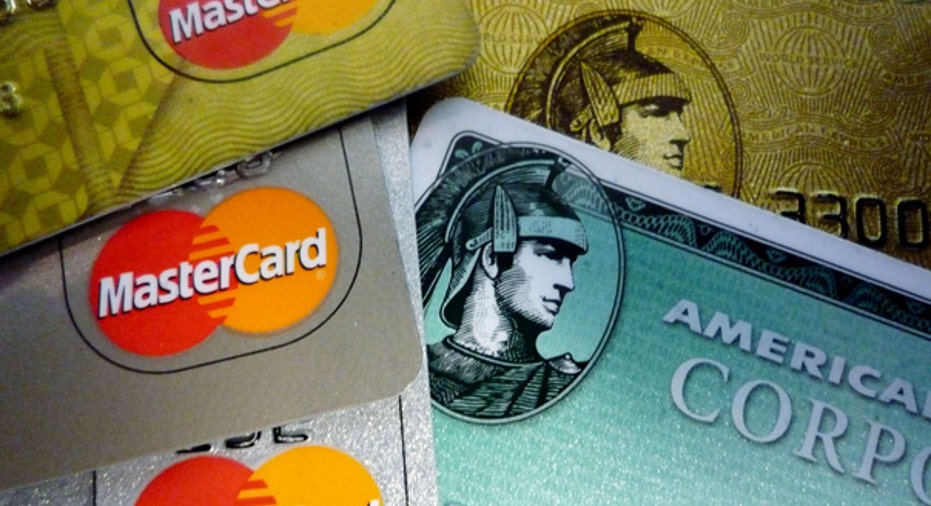Outrageous Credit Card Purchases Highlight Banks' Fraud Prevention Efforts

A single bottle of beer, for half a million dollars
Collectors lust after bottles of Samuel Allsopp's Arctic Ale, especially a corked specimen from the 1850s. The original owner, not quite knowing what they had on their hands, listed the item incorrectly. Despite a $304 sale, spelling the name of the brewer wrong cost the original seller a six figure payout.
With museum-style photographs and the full name of the rare ale on the listing, the item's second auction closed with a bid of $503,300. According to an eBay spokesperson, winners of high value items like this can pay up to $10,000 toward their bids using a verified credit card on eBay. After that, it's up to the seller to decide how to collect the rest.
Marty McFly's Nike sneakers
In 2011, Nike announced the release of Nike Mag sneakers, replicas of the shoes Michael J. Fox wore in the second installment of the "Back to the Future" franchise. With proceeds earmarked for Parkinson's Disease research through Fox's foundation, sneakerheads warmed up their credit cards for ten daily eBay auctions of 150 pairs each.
At a Hollywood charity auction the night before the Nike Mags hit the market, Fox surprised attendees with the opportunity to bid on the very first pair from the limited run. British rapper Tinie Tempah whipped out his credit card for what he would later tell call "an impulse buy." $37,500 got Tinie his kicks, a custom "plutonium briefcase," and plenty of rewards points.
Celebrating Lil' Wayne and a great financial brain
With no pre-set spending limit, a typical American Express Platinum or Centurion Card can absorb the cost of a serious celebration long enough to get reimbursed by a company's CFO. For example, Drake celebrated record mogul Lil' Wayne's return from prison with a $189,375 party at the Wynn Las Vegas resort. (Drake wouldn't say if the bill came out of his own pocket or the record label's.)
However, the world's largest known bar tab landed on the black card of London currency trader Alex Hope. While two bar backs at Liverpool's PlayGround nightclub struggled to hoist a 30 liter container of elite champagne to Hope's table, the happy trader treated 40 other revelers, mostly strangers, to their own $750 bottles. A reportedly sober Hope settled up for $321,000.
Loose diamonds from a smartphone app
When technologists in Canada gathered for a conference on mobile e-commerce, they examined the case of the $300,000 diamond. The buyer ordered the loose stone using a smartphone application developed for retailer Blue Nile by Calgary design shop Mediumrare.
Mediumrare Creative Director Bryan Maniotakis told panelists that the large purchase demonstrated the trust smartphone users place in applications, in networks, and in linked credit cards. (Maniotakis couldn't provide additional details, due to privacy regulations.)
An "unreasonable" art purchase
Because of his audacity, and because merchants have since set limits on large transactions, Eli Broad retains the record for the largest reported credit card transaction of all time. He chronicled his 1995 decision to purchase a $2.5 million Roy Lichtenstein painting with an American Express card in his memoir, "The Art of Being Unreasonable."
Unlike Tinie Tempah, the Fortune 500 CEO used his AmEx for strategic reasons. After collecting interest on the cash he would have otherwise handed over at the time of purchase, Broad donated millions of earned frequent flier miles to students at CalArts. Sotheby's, however, chose to stop accepting credit cards for auction purchases after Broad's purchase.
Why consumers should make large purchases with credit cards
Jeff Liesendahl, senior vice president of Accertify at American Express, notes that major credit cards use sophisticated security systems that offer speed and convenience compared to cash, check, and wire transfers. "Merchants with inflexible fraud prevention technology or who manually review every suspect transaction end up delaying and denying legitimate transactions," Liesendahl said in a statement to reporters.
Visa spokesman Mark Nelsen explained to reporters how his company analyzes real-time spending data to help banks avoid paying for fraudulent transactions. "Without any additional technology investments, financial institutions will be able to pinpoint complex fraud patterns that might otherwise go undetected," Nelsen said. Strong fraud prevention tools help power the "zero liability" purchase protection programs now included with most popular credit cards, ensuring that consumers who only occasionally party like rock stars don't have to cover bar tabs for identity thieves.
The original article can be found at CardRatings.com:5 outrageous credit card purchases



















